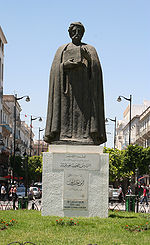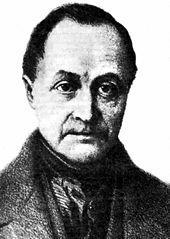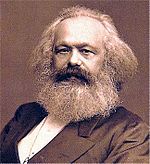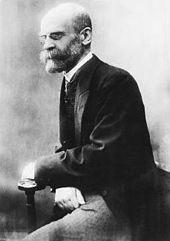БОК политология Омарбекова А.Т. 0704000,0701000. Общее количество на предмет 28 часов
 Скачать 0.77 Mb. Скачать 0.77 Mb.
|
|
Тема: International politics and international relationship. International relations International relations (IR) is the study of relationships between countries, including the roles of states, inter-governmental organizations (IGOs), international nongovernmental organizations (INGOs), non-governmental organizations (NGOs) and multinational corporations (MNCs). It is both an academic and public policy field, and can be either positive or normative as it both seeks to analyze as well as formulate the foreign policy of particular states. It is often considered a branch of political science. IR draws upon such diverse fields as economics, history, international law, philosophy, geography, social work, sociology, anthropology, criminology, psychology, gender studies, and cultural studies / culturology. It involves a diverse range of issues including but not limited to: globalization, state sovereignty, international security, ecological sustainability, nuclear proliferation, nationalism, economic development, global finance, terrorism, organized crime, human security, foreign interventionism and human rights. History The history of international relations can be traced thousands of years ago; Barry Buzan and Richard Little, for example, consider the interaction of ancient Sumerian city-states, starting in 3,500 BC, as the first fully-fledged international system. The history of international relations based on sovereign states is often traced back to the Peace of Westphalia of 1648, a stepping stone in the development of the modern state system. The centuries of 1500 to 1789 saw the rise of the independent, sovereign states, the institutionalization of diplomacy and armies. The French Revolution added to this the new idea that not princes or an oligarchy. The particular European system supposing the sovereign equality of states was exported to the Americas, Africa, and Asia via colonialism and the "standards of civilization". The contemporary international system was finally established through decolonization during the Cold War. In the twentieth century, in addition to contemporary theories of liberal internationalism, Marxism has been a foundation of international relations. Realism Realism focuses on state security and power above all else. Early realists such as E.H. Carr and Hans Morgenthau argued that states are self-interested, power-seeking rational actors, who seek to maximize their security and chances of survival. Cooperation between states is a way to maximize each individual state's security (as opposed to more idealistic reasons). Similarly, any act of war must be based on self-interest, rather than on idealism. Many realists saw World War II as the vindication of their theory. Liberalism/idealism/liberal internationalism Liberal international relations theory arose after World War I in response to the inability of states to control and limit war in their international relations. Early adherents include Woodrow Wilson and Norman Angell, who argued vigorously that states mutually gained from cooperation and that war was so destructive as to be essentially futile. Liberalism was not recognized as a coherent theory as such until it was collectively and derisively termed idealism by E. H. Carr. A new version of "idealism" that focused on human rights as the basis of the legitimacy of international law was advanced by Hans Köchler. Neoliberalism Neoliberalism seeks to update liberalism by accepting the neorealist presumption that states are the key actors in international relations, but still maintains that non-state actors (NSAs) and intergovernmental organizations (IGOs) matter. Proponents such as Maria Chattha argue that states will cooperate irrespective of relative gains, and are thus concerned with absolute gains. This also means that nations are, in essence, free to make their own choices as to how they will go about conducting policy without any international organizations blocking a nation's right to sovereignty. Neoliberalism also contains an economic theory that is based on the use of open and free markets with little, if any, government intervention to prevent monopolies and other conglomerates from forming. The growing interdependence throughout and after the Cold War through international institutions led to neo-liberalism being defined as institutionalism, this new part of the theory being fronted by Robert Keohane and also Joseph Nye. Marxism Marxist and Neo-Marxist theories of IR reject the realist/liberal view of state conflict or cooperation; instead focusing on the economic and material aspects. It makes the assumption that the economy trumps other concerns; allowing for the elevation of class as the focus of study. Marxists view the international system as an integrated capitalist system in pursuit of capital accumulation. Thus, the period of colonialism brought in sources for raw materials and captive markets for exports, while decolonialization brought new opportunities in the form of dependence. Systemic tools of international relations Diplomacy is the practice of communication and negotiation between representatives of states. To some extent, all other tools of international relations can be considered the failure of diplomacy. Keeping in mind, the use of other tools are part of the communication and negotiation inherent within diplomacy. Sanctions, force, and adjusting trade regulations, while not typically considered part of diplomacy, are actually valuable tools in the interest of leverage and placement in negotiations. Sanctions are usually a first resort after the failure of diplomacy, and are one of the main tools used to enforce treaties. They can take the form of diplomatic or economic sanctions and involve the cutting of ties and imposition of barriers to communication or trade. War, the use of force, is often thought of as the ultimate tool of international relations. A widely accepted definition is that given by Clausewitz, with war being "the continuation of politics by other means". There is a growing study into 'new wars' involving actors other than states. The study of war in International Relations is covered by the disciplines of 'War Studies' and 'Strategic studies'. Контрольные вопросы: 1. What tendencies are characterized for modern international relations? 2. What main problems do people meet? Why some problems are called global? 3. What role does international cooperation play for solving ecological problems? УРОК 11 Тема: International politics and international relationship. Foreign relations of Kazakhstan Foreign relations of Kazakhstan are based on economic and political security. Since gaining independence in 1991, Kazakhstan has established diplomatic relations with over 110 countries. It is a member of the CIS (Commonwealth of Independent States), the United Nations, the International Monetary Fund, the World Bank, the European Bank for Reconstruction and Development, the Asian Development Bank, the International Finance Corporation, the Islamic Development Bank and several other international organizations. In January 1995, Kazakhstan signed a Partnership and Cooperation Agreement with the European Union, with a view to establishing closer economic and political ties with the European Union. The European Union and the United States have recognized Kazakhstan as a country with a market economy. Kazakhstan has acceded to many major international conventions and expects to become a member of the World Trade Organization. Together with Russia, China, Kyrgyzstan, Tajikistan and Uzbekistan, Kazakhstan is a member of the Shanghai Cooperation Organization. Originally formed to deal with matters of border control, this organization now deals with combating terrorism, drug and weapon smuggling, and other issues. Kazakhstan also actively encourages economic relationships with Russia and its neighboring countries in Central Asia. It is a member of the Eurasian Economic Community (EEC) – an international organization founded by Belarus, Kazakhstan, Kyrgyzstan, Russia and Tajikistan with the aim of furthering collaboration among community members, primarily in the fields of economics, finance, and social policy. Together with most other CIS countries, Kazakhstan is a member of a treaty providing for a free trade zone among these countries, and is also a signatory to a treaty with Russia, Belarus and Ukraine for the creation of a free economic space and harmonization of macroeconomic policies. Kazakhstan established a customs union with Russia and Belarus. It will be transformed into the Common Economic Space in 2012. Kazakhstan established the Eurasian Economic Community with Kyrgyzstan and Tajikistan. Kazakhstan's Chairmanship in the OSCE In January 2010 Kazakhstan assumed the chairmanship of the Organization for Security and Cooperation in Europe (OSCE), the biggest regional security organization, connecting 56 countries of Europe, North America and Asia. Kazakhstan became the first post Soviet, predominantly Asian and Muslim state to be given the honor of leading the organization. With no doubts, the honor of the chairmanship in the authoritative international organizations symbolizes the success of social, economic and political achievements of Kazakhstan during the 18 years of its independence. Kazakhstan's Chaimanship presents important opportunities for both, Astana and OSCE. The major achievement of Kazakhstan's Chairmanship could be the successful organisation of the OSCE Summit. As the last summit was hold in 1999 in Istanbul, the first summit in the past 10 years could give a fresh impetus to the development of the OSCE. In particular, the summit could strengthen the relationships between the Western and Central Asian countries and support the integration process between various actors. Контрольные вопросы: 1. What tendencies are characterized for modern international relations? 2. What main problems do people meet? Why some problems are called global? 3. What role does international cooperation play for solving ecological problems? 4. What states does Kazakhstan cooperate for solving economical and ecological problems with? УРОК 12 Тема: Origin and formation of Sociology as science. Sociology Sociology is the study of society. It is a social science which uses various methods of empirical investigation and critical analysis to develop a body of knowledge about human social activity. For many sociologists the goal is to conduct research which may be applied directly to social policy and welfare, while others focus primarily on refining the theoretical understanding of social processes. Subject matter ranges from the micro level of individual agency and interaction to the macro level of systems and the social structure. The traditional focuses of sociology have included social stratification, social class, culture, social mobility, religion, secularization, law, and deviance. As all spheres of human activity are affected by the interplay between social structure and individual agency, sociology has gradually expanded its focus to further subjects, such as health, medical, military and penal institutions, the Internet, and the role of social activity in the development of scientific knowledge. The range of social scientific methods has also expanded. Social researchers draw upon a variety of qualitative and quantitative techniques. The linguistic and cultural turns of the mid-twentieth century led to increasingly interpretative, hermeneutic, and philosophic approaches to the analysis of society. Conversely, recent decades have seen the rise of new analytically, mathematically and computationally rigorous techniques, such as agent-based modelling and social network analysis.[4][5] Sociology should not be confused with various general social studies courses which bear little relation to sociological theory or social science research methodology. History Origins  Ibn Khaldun (1332-1406) Sociological reasoning predates the foundation of the discipline. Social analysis has origins in the common stock of Western knowledge and philosophy, and has been carried out from as far back as the time of ancient Greek philosopher Plato if not before. The origin of the survey, i.e., the collection of information from a sample of individuals, can be traced back at least early as the Domesday Book in 1086, while ancient philosophers such as Confucius wrote on the importance of social roles. There is evidence of early sociology in medieval Islam. Some consider Ibn Khaldun, a 14th century Arab Islamic scholar from North Africa, to have been the first sociologist; his Muqaddimah was perhaps the first work to advance social-scientific reasoning on social cohesion and social conflict. The word sociology (or "sociologie") is derived from both Latin and Greek origins. The Latin word: socius, "companion"; -ology, "the study of", and in Greek lógos, "word", "knowledge". It was first coined in 1780 by the French essayist Emmanuel-Joseph Sieyès (1748–1836) in an unpublished manuscript.Sociology was later defined independently by the French philosopher of science, Auguste Comte (1798–1857), in 1838.[15] Comte used this term to describe a new way of looking at society. Comte had earlier used the term "social physics", but that had subsequently been appropriated by others, most notably the Belgian statistician Adolphe Quetelet. Comte endeavored to unify history, psychology and economics through the scientific understanding of the social realm. Writing shortly after the malaise of the French Revolution, he proposed that social ills could be remedied through sociological positivism, an epistemological approach outlined in The Course in Positive Philosophy [1830–1842] and A General View of Positivism (1848). Comte believed a positivist stage would mark the final era, after conjectural theological and metaphysical phases, in the progression of human understanding. In observing the circular dependence of theory and observation in science, and having classified the sciences, Comte may be regarded as the first philosopher of science in the modern sense of the term.  Auguste Comte (1798-1857) Comte gave a powerful impetus to the development of sociology, an impetus which bore fruit in the later decades of the nineteenth century. To say this is certainly not to claim that French sociologists such as Durkheim were devoted disciples of the high priest of positivism. But by insisting on the irreducibility of each of his basic sciences to the particular science of sciences which it presupposed in the hierarchy and by emphasizing the nature of sociology as the beginnings can be traced back well beyond Montesquieu, for example, and to Condorcet, not to speak of Saint-Simon, Comte's immediate predecessor. But Comte's clear recognition of sociology as a particular science, with a character of its own, justified Durkheim in regarding him as the father or founder of this science, in spite of the fact that Durkheim did not accept the idea of the three states and criticized Comte's approach to sociology.  Karl Marx (1818-1883) Both Auguste Comte and Karl Marx set out to develop scientifically justified systems in the wake of European industrialization and secularization, informed by various key movements in the philosophies of history and science. Marx rejected Comtean positivism but in attempting to develop a science of society nevertheless came to be recognized as a founder of sociology as the word gained wider meaning. For Isaiah Berlin, Marx may be regarded as the "true father" of modern sociology, "in so far as anyone can claim the title." Foundations of the academic discipline  Émile Durkheim Formal academic sociology was established by Émile Durkheim (1858–1917), who developed positivism as a foundation to practical social research. While Durkheim rejected much of the detail of Comte's philosophy, he retained and refined its method, maintaining that the social sciences are a logical continuation of the natural ones into the realm of human activity, and insisting that they may retain the same objectivity, rationalism, and approach to causality. Durkheim set up the first European department of sociology at the University of Bordeaux in 1895, publishing his Rules of the Sociological Method (1895). For Durkheim, sociology could be described as the "science of institutions, their genesis and their functioning". Durkheim's seminal monograph, Suicide (1897), a case study of suicide rates amongst Catholic and Protestant populations, distinguished sociological analysis from psychology or philosophy. It also marked a major contribution to the theoretical concept of structural functionalism. By carefully examining suicide statistics in different police districts, he attempted to demonstrate that Catholic communities have a lower suicide rate than that of Protestants, something he attributed to social (as opposed to individual or psychological) causes. He developed the notion of objective suis generis "social facts" to delineate a unique empirical object for the science of sociology to study. Through such studies he posited that sociology would be able to determine whether any given society is 'healthy' or 'pathological', and seek social reform to negate organic breakdown or "social anomie". Sociology quickly evolved as an academic response to the perceived challenges of modernity, such as industrialization, urbanization, secularization, and the process of "rationalization".The field predominated in continental Europe, with British anthropology and statistics generally following on a separate trajectory. By the turn of the 20th century, however, many theorists were active in the Anglo-Saxon world. Few early sociologists were confined strictly to the subject, interacting also with economics, jurisprudence, psychology and philosophy, with theories being appropriated in a variety of different fields. Since its inception, sociological epistemologies, methods, and frames of inquiry, have significantly expanded and diverged. Durkheim, Marx, and the German theorist Max Weber are typically cited as the three principal architects of social science. Herbert Spencer, William Graham Sumner, Lester F. Ward, Vilfredo Pareto, Alexis de Tocqueville, Werner Sombart, Thorstein Veblen, Ferdinand Tönnies, Georg Simmel and Karl Mannheim are occasionally included on academic curricula as founding theorists. Each key figure is associated with a particular theoretical perspective and orientation. Marx and Engels associated the emergence of modern society above all with the development of capitalism; for Durkheim it was connected in particular with industrialization and the new social division of labor which this brought about; for Weber it had to do with the emergence of a distinctive way of thinking, the rational calculation which he associated with the Protestant Ethic (more or less what Marx and Engels speak of in terms of those 'icy waves of egotistical calculation'). Together the works of these great classical sociologists suggest what Giddens has recently described as 'a multidimensional view of institutions of modernity' and which emphasizes not only capitalism and industrialism as key institutions of modernity, but also 'surveillance' (meaning 'control of information and social supervision') and 'military power' (control of the means of violence in the context of the industrialization of war). Контрольные вопросы: 1. What science is sociology? 2. Formation of sociology as a science. УРОК 13 |
